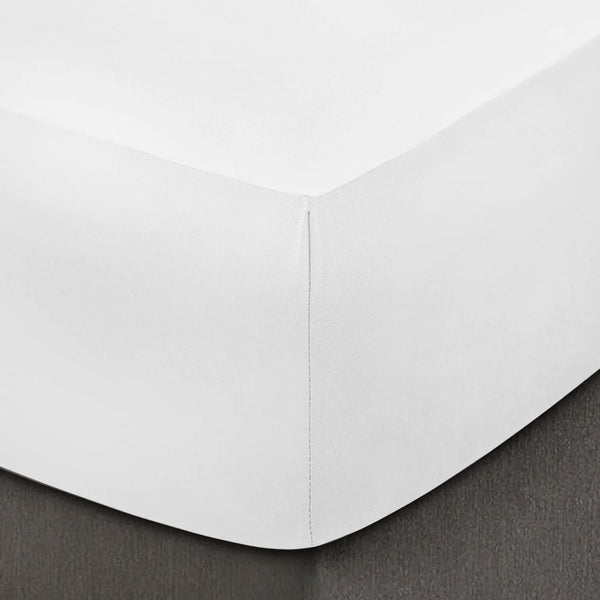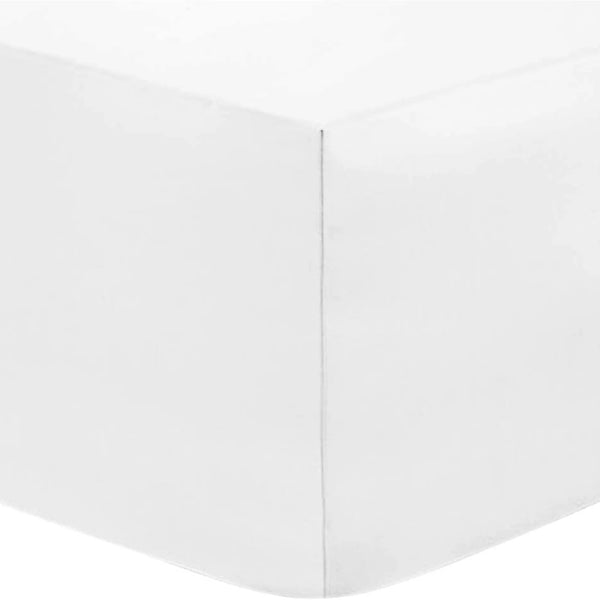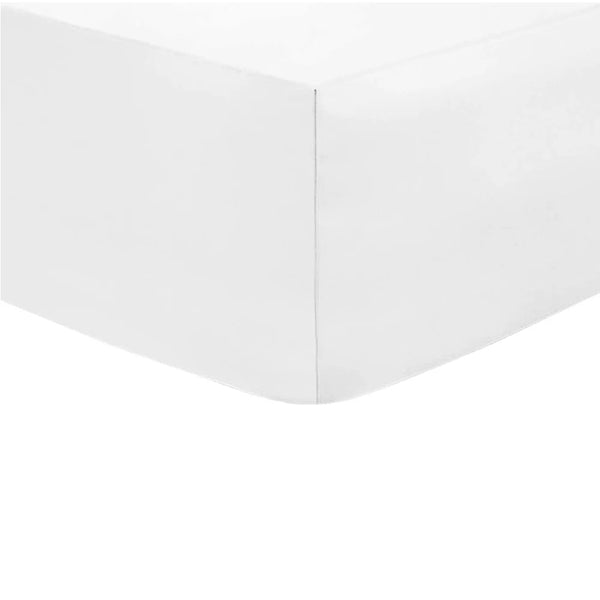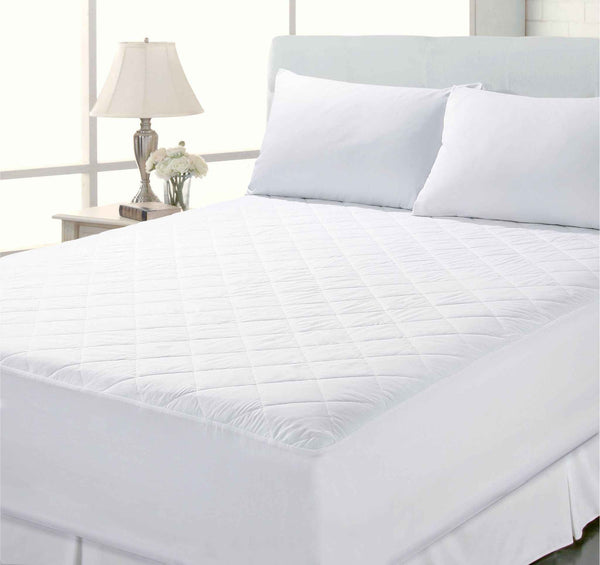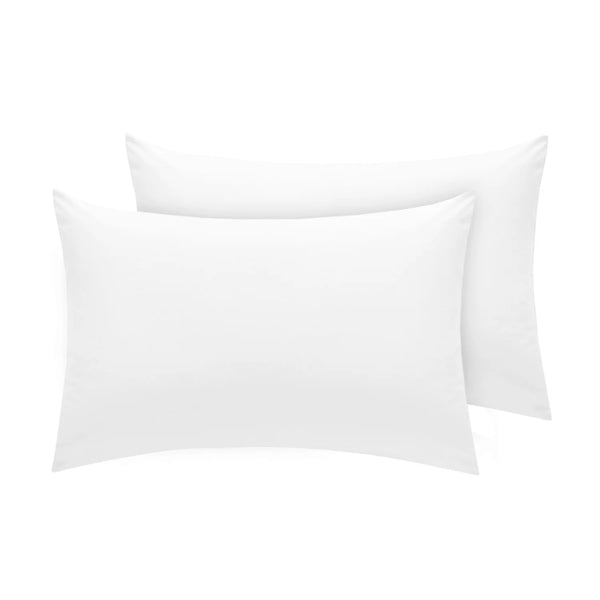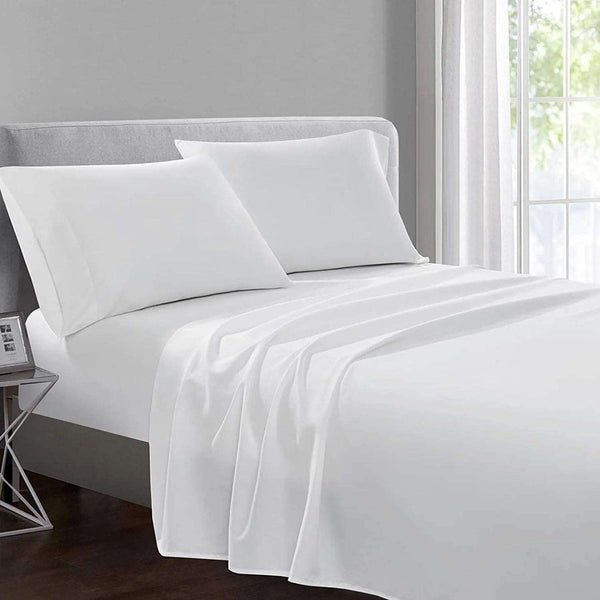What Are the Best Bed Sheets for Sensitive Skin?
Understanding Sensitive Skin and Sleep Irritation
If you often wake up with red patches, itchiness, or irritation, your bed sheets might be the culprit. Sensitive skin reacts to certain fabrics, dyes, and chemicals, especially during prolonged contact at night. Identifying the right type of bed linen can drastically improve your sleep quality and skin health.
Why Choosing the Right Bedding Material Matters
Choosing the best bedding material isn't just about comfort—it's a health decision. Poor-quality fabrics may trap dust mites, bacteria, and chemical residues. Opting for natural, breathable, and hypoallergenic fabrics like organic cotton or bamboo ensures better air circulation, moisture-wicking, and skin compatibility.
Common Signs Your Bed Sheets Are Irritating Your Skin
- Redness or rashes upon waking
- Persistent itchiness in contact areas
- Dry patches and flaking skin
- Breakouts or sensitivity increase over time
Dermatologist Insights on Sleep and Skin Health
According to dermatologists, our skin undergoes repair at night. Using soft sheets for sensitive skin made from breathable materials helps prevent clogged pores, skin abrasion, and overheating. Dermatologist-approved fabrics often include OEKO-TEX® certified cotton, organic bamboo, and pure silk.
Key Factors to Consider Before Buying Bed Sheets for Sensitive Skin

Material Composition: Natural vs. Synthetic Fibres
Natural Fibres
Natural materials like organic cotton, linen, and bamboo are ideal for people with allergies or sensitive skin. These are breathable, soft, and free from harsh chemicals.
Synthetic Fibres
Polyester or microfiber sheets might be soft but can trap heat and irritants. Unless labeled as hypoallergenic, these are not recommended for delicate or allergy-prone skin.
Thread Count: What’s Ideal for Skin Comfort?
Thread count impacts softness and breathability. For sensitive skin, a thread count between 300 and 400 is ideal—high enough for comfort but not too dense to block airflow. Egyptian cotton and Supima cotton within this range offer a luxurious yet breathable sleep surface.
Weave Type: Sateen vs. Percale
Sateen
Sateen sheets have a smooth, silky feel ideal for dry or itchy skin. They’re more wrinkle-resistant and feel warmer.
Percale
Percale weave sheets are crisp and cooler, making them suitable for hot sleepers or those with oily or acne-prone skin.
Certification Standards: OEKO-TEX®
Always look for the OEKO-TEX® Standard 100 certification which guarantees the sheets are free from harmful chemicals and safe for skin contact. At Dtex Homes UK, we proudly offer OEKO-TEX® certified bedding for your peace of mind.
Hypoallergenic Properties & Allergen Resistance
The best hypoallergenic bed sheets resist common allergens such as dust mites, mold, and pet dander. Materials like bamboo, organic cotton, and TENCEL™ naturally repel allergens while maintaining moisture control and softness. These are the best bed sheets for allergies and sensitive skin.
Anti-Allergy Features to Look For
- Moisture-wicking ability
- Dust mite resistance
- Antimicrobial treatment
- No chemical finishes
Tip from Dtex Homes Experts
Always wash your bed sheets before first use. Use fragrance-free detergent and avoid fabric softeners which can leave residue irritating to the skin.
Our Commitment to Sensitive Sleepers
At Dtex Homes UK, we specialise in premium, dermatologist-approved, and eco-conscious bedding. Whether you're shopping for a king-size sheet set, deep fitted sheet, or cooling cotton duvet covers, we offer tailored options for skin-sensitive customers across the UK.
The Best Materials for Bed Sheets for Sensitive Skin

Organic Cotton Sheets – Breathable and Natural
Organic cotton sheets are free from harmful pesticides and synthetic dyes, making them an excellent option for individuals with skin sensitivities. Their soft texture and breathability help promote a restful night’s sleep.
Benefits of Organic Cotton for Skin Sensitivities
- Certified chemical-free by GOTS
- Allows airflow, reducing heat and sweat
- Durable and easy to wash
- Best cotton sheets for sensitive skin with natural fibres
Silk Sheets – Gentle on Skin and Hair
Silk bed sheets are a luxurious option that’s ideal for dry or allergy-prone skin. They glide effortlessly over your skin and reduce friction, which helps minimise irritation and hair breakage.
Why Silk is Great for Hair and Skin
- Reduces skin irritation and prevents wrinkles
- Prevents hair tangles and frizz
- Highly breathable and cool to the touch
- Perfect sheets for skin and hair care
Bamboo Sheets – Ultra-Soft and Hypoallergenic
Bamboo bed sheets are a top choice for people with sensitive skin. Naturally hypoallergenic and antibacterial, bamboo fabric repels dust mites and allergens while staying incredibly soft and breathable. Its moisture-wicking properties make it ideal for hot sleepers and those prone to night sweats.
Why Bamboo Sheets are Ideal for Sensitive Skin
- Anti-bacterial and odour resistant
- Thermo-regulating for year-round comfort
- Free from harsh chemicals
- Best sheets for sensitive skin due to smooth fibres
Linen Sheets – Lightweight and Temperature Regulating
Linen sheets are made from flax fibres and are known for their exceptional breathability. Though slightly rougher than cotton or silk at first, they soften over time and regulate temperature exceptionally well—ideal for those with sensitive or itchy skin.
Are Linen Sheets Good for Sensitive Skin?
- Highly breathable and moisture-wicking
- Anti-static and naturally hypoallergenic
- Best sheets for dry and hot climates
- Durable and long-lasting investment
Hypoallergenic Bedding Explained

What Makes a Bed Sheet Hypoallergenic?
Hypoallergenic bed sheets are designed to reduce the risk of allergic reactions. They’re made from fibres that resist allergens like dust mites, pet dander, and mould. For those with skin conditions such as eczema or psoriasis, hypoallergenic bedding is essential for comfort and health.
Common Hypoallergenic Materials
- Organic cotton
- Bamboo viscose
- TENCEL™ Lyocell
- Silk
Key Indicators of Hypoallergenic Bedding
- OEKO-TEX® or GOTS certification
- Free from synthetic dyes and chemicals
- Tight weave to block dust mites
Are There More Options of Hypoallergenic Bedding?
Yes, aside from sheets, you can also explore hypoallergenic duvet covers, pillowcases, mattress protectors, and comforters. At Dtex Homes UK, we offer a wide range of allergen-resistant bedding essentials, tailored for sensitive sleepers.
Additional Hypoallergenic Bedding Types
- Anti-allergy duvet covers
- Mattress encasements
- Hypoallergenic pillowcases
- Waterproof yet breathable protectors
Hypoallergenic vs. Anti-Allergy Sheets
Although often used interchangeably, there’s a slight difference. Hypoallergenic sheets are made with materials less likely to cause allergic reactions, while anti-allergy bedding may contain special treatments to actively block allergens. Always read labels carefully to understand what you're buying.
Which One Should You Choose?
If you suffer from skin allergies or asthma, it's best to choose certified hypoallergenic materials. For extreme sensitivity, look for sheets labelled both hypoallergenic and anti-allergy for added peace of mind.
How Hypoallergenic Fabrics Help With Eczema & Acne
Sensitive skin conditions like eczema and acne can worsen with harsh bedding materials. Hypoallergenic sheets minimise skin contact with irritants and allergens, preventing flare-ups and breakouts. Materials like silk and organic cotton offer a calming sleep environment.
Choosing the Right Sheets for Skin Conditions
- For eczema: Choose soft, breathable, and chemical-free materials
- For acne-prone skin: Avoid synthetic fabrics and opt for natural fibres
- Look for bedding with antimicrobial properties
How to Choose Bed Sheets When You Have Sensitive Skin

What to Look for When Shopping in the UK
When shopping for the best bed sheets for sensitive skin in the UK, it's crucial to focus on natural, hypoallergenic materials. Prioritise sheets made from organic cotton, bamboo, or silk which are gentle on the skin. These fabrics are known to reduce irritation, especially for those with eczema, rosacea, or other skin sensitivities. Consider UK-based stores like Dtex Homes, which specialise in high-quality bedding tailored to local needs and climate.
Thread Count vs. Fabric Type: What Matters More?
A common myth is that higher thread count equals better quality. However, for sensitive skin, the fabric type is more important than the thread count. Look for breathable materials with a thread count between 300-500 for optimal comfort and airflow.
Avoiding Harsh Chemicals and Fabric Softeners
Many conventional bed sheets are treated with formaldehyde, flame retardants, or dyed with chemical-heavy pigments that can cause flare-ups. Always opt for untreated or naturally dyed sheets. Avoid using fabric softeners or harsh detergents when washing sheets—use hypoallergenic, fragrance-free laundry products instead.
Natural Alternatives for Laundry Care
- Use white vinegar as a natural fabric softener
- Opt for unscented, dermatologically tested detergents
- Rinse sheets twice to remove any detergent residue
Picking the Right Fit – Fitted, Flat or Deep Sheets

The right fit is vital for both comfort and skin health. Ill-fitting sheets can cause bunching and friction during sleep, which may lead to irritation.
Fitted Sheets for Secure Fit
Fitted sheets with elastic edges are perfect for a smooth, snug fit, especially on thicker or memory foam mattresses.
Deep Fitted Sheets for Extra Mattress Depth
Deep fitted sheets are ideal for those who use mattress toppers or have deep mattresses. Dtex Homes UK offers deep fitted options in hypoallergenic fabrics.
Flat Sheets as a Barrier
Flat sheets can provide an extra layer of protection and are easier to wash and swap out more frequently.
Best Colours for Sensitive Skin – Dyes & Pigments Matter
Artificial dyes can often irritate delicate skin. Choose white, ivory, or light pastel-coloured sheets, which are less likely to contain aggressive chemical dyes.
Go for Natural Dyes
When colour is important, look for brands that use plant-based or low-impact dyes. At Dtex Homes, our sheets are crafted with safe, non-toxic colourants ideal for sensitive sleepers in the UK.
Best Bed Sheets for Sensitive Skin and Allergies in the UK

Why Dtex Homes Is a Trusted Choice for Sensitive Sleepers
As a UK-based brand, Dtex Homes understands the needs of local consumers. Our collection of hypoallergenic, breathable bed sheets are crafted with organic cotton, free from harsh dyes and allergens. We prioritise skin-friendly fabric and sustainable practices to ensure safe, soothing sleep for our customers.
Tailored for UK Homes
From damp climates to varying mattress sizes, our sheets are made to accommodate UK beds and skin sensitivities.
Easy Online Shopping and UK Delivery
Order your skin-safe bedding online with fast UK-wide delivery, secure checkout, and customer support through phone or WhatsApp:
- 📞 0161-6811742
- 📱 WhatsApp: +447543796121
Customer Reviews and Dermatologist Recommendations
Many customers report relief from itching, redness, and allergic reactions after switching to Dtex Homes’ bed sheets. Dermatologists also recommend our products for people with dermatitis, eczema, or psoriasis due to the chemical-free and breathable fabric composition.
Real Testimonials from UK Shoppers
“I’ve tried multiple brands, but Dtex Homes sheets were the only ones that didn’t cause irritation. Highly recommend for anyone with sensitive skin.” — Hannah W., London
Comparing Our Products to Leading Alternatives
While many big-name brands use synthetic blends or harsh treatments, Dtex Homes focuses on natural fibres and skin-safe manufacturing. Compared to other UK bedding companies, we offer:
- 100% cotton sheets without chemical additives
- Deep fitted sheet options for modern UK beds
- Affordable pricing without sacrificing quality
Other Hypoallergenic Bedding Options
In addition to bed sheets, consider upgrading to hypoallergenic duvet covers, pillowcases, and mattress protectors for a complete irritation-free sleeping setup. Explore more at Dtex Homes UK.
Bedsheet Fabric Guide: Pros and Cons of Each Material

Cotton vs. Bamboo vs. Silk – Which Is Best for Skin?
These three materials are the most recommended for people with sensitive skin due to their natural softness, breathability, and moisture-wicking properties.
Organic Cotton
Organic cotton sheets are breathable, hypoallergenic, and extremely soft. They're ideal for daily use, especially in humid UK climates.
Bamboo Sheets
Bamboo bed sheets are antimicrobial, highly breathable, and naturally soft—making them perfect for both sensitive skin and hot sleepers.
Silk Sheets
Silk sheets reduce friction on the skin and hair, and are excellent for people prone to irritation or breakouts. However, they require special care.
Polyester and Microfiber – Are They Safe for Sensitive Skin?

Polyester and microfiber sheets are often budget-friendly, but they trap heat and moisture, which may cause skin irritation and discomfort for those with dermatitis or allergies.
Downsides of Synthetic Fabrics
These fabrics may also carry residual chemicals from the manufacturing process, making them unsuitable for sensitive skin.
Sateen vs. Percale – Feel, Breathability, and Benefits

Sateen sheets are silky and luxurious, while percale sheets are crisp and breathable. Both can be good for sensitive skin, depending on personal preference.
Which One Should You Choose?
If you prefer a smooth, shiny surface, go with sateen. For a cooler, breathable feel, percale is better—especially during warm UK nights.
Sheets for Sensitive Skin: Common Myths and Facts

Are Satin Sheets Bad for Your Skin?
Satin sheets are often misunderstood. While they feel smooth, not all satin is made equally. Polyester-based satin can trap heat and irritate sensitive skin. However, silk satin—made from natural fibers—is breathable and gentle. For those prone to skin irritation, Dtex Homes recommends checking the material composition before buying satin sheets.
Alternative: Silk vs. Polyester Satin
Silk is a natural hypoallergenic fiber, making it a great bed sheet option for sensitive skin. Polyester satin, on the other hand, is synthetic and may cause sweating or itching during warm nights.
Can Dirty Sheets Cause Acne or Itching?
Absolutely. Dirty bed sheets collect sweat, oils, bacteria, and dead skin cells—all of which can aggravate acne and trigger skin sensitivities. It's crucial to sleep on fresh, breathable sheets like the ones offered by Dtex Homes UK to maintain healthy skin and prevent flare-ups.
Tip: Change Pillowcases More Often
Your face touches your pillow more than any other surface at night. Changing pillowcases every 2–3 days can reduce breakouts and skin irritation.
Is TENCEL Better Than Cotton for Sensitive Skin?
TENCEL, derived from eucalyptus pulp, is known for its softness and moisture-wicking properties. It’s one of the best bed sheet materials for sensitive skin, especially for hot sleepers. Still, 100% Egyptian cotton sheets—like those at Dtex Homes—remain a popular, breathable, and skin-friendly choice.
Pros and Cons of TENCEL vs. Cotton
- TENCEL: Eco-friendly, soft, moisture-absorbent
- Egyptian Cotton: Durable, naturally breathable, hypoallergenic
Do Thread Counts Over 200, 400, 800 Really Matter?
Thread count alone doesn’t determine quality. A count of 300–500 in long-staple cotton (like Egyptian cotton) is ideal for sensitive skin. Anything higher may be marketing fluff unless paired with premium fibers. At Dtex Homes UK, we offer high-quality bedding with the right thread count and fabric type for ultimate comfort.
How Often Should You Wash Bed Sheets If You Have Sensitive Skin?

Washing Frequency & Best Laundry Practices
For individuals with allergies or sensitive skin, washing sheets once a week is essential. Use hot water (around 60°C) to kill dust mites and bacteria without damaging the fibers. Dtex Homes recommends a gentle cycle to preserve the integrity of your hypoallergenic bed sheets.
Should You Wash More Often in Summer?
Yes. In warm months, sweat increases. If you're a hot sleeper, consider washing your sheets every 3–5 days for better skin health.
Choosing the Right Detergents and Fabric Conditioners
Opt for fragrance-free and dye-free detergents, as these reduce the risk of skin irritation. Avoid harsh bleaches or additives. Brands like Ecover and Seventh Generation offer skin-safe formulas compatible with sensitive bedding materials like bamboo or organic cotton.
Should You Use Fabric Softener for Sensitive Skin?
Fabric softeners often contain chemicals and fragrances that may leave residues, triggering rashes or itching. We recommend skipping traditional softeners for natural alternatives like vinegar or wool dryer balls, which are safer for both skin and fabric.
The Importance of Drying Methods & Storage
Proper drying helps prevent mold and bacterial growth. Line drying in the sun is ideal—UV rays naturally disinfect. When using a dryer, ensure sheets are fully dry before storing. Store your new bed linen in breathable cotton bags instead of plastic, to avoid trapped moisture.
Pro Tip for Storage
Add a lavender sachet to keep sheets smelling fresh and naturally repel dust mites—perfect for hypoallergenic bedding storage.
What Type of Mattress and Accessories Are Best for Sensitive Skin?

Hypoallergenic Mattress Protectors and Toppers
Mattresses can harbor dust mites, mold, and allergens. That’s why hypoallergenic protectors are essential for sensitive sleepers. Look for covers made from TENCEL, bamboo, or tightly woven cotton with waterproof layers to shield against spills and dust accumulation.
Recommended Product: Dtex Homes Mattress Protectors
Our UK-designed hypoallergenic protectors at Dtex Homes provide an additional layer of defense against allergens while maintaining breathability and comfort.
Duvets, Pillowcases, and Fitted Sheets – What to Choose
All layers of your bed should complement one another. Choose:
- Fitted sheets: Deep-pocketed, breathable materials like bamboo or cotton sateen
- Pillowcases: Hypoallergenic and washable, especially for acne-prone skin
- Duvets: Down-alternative or microfiber fill for allergy control
Layering Your Bed for Comfort and Breathability
Use breathable layers to regulate temperature and prevent sweat buildup. Start with a moisture-wicking mattress topper, followed by a cooling fitted sheet, then your duvet and pillows. This technique ensures comfort and supports healthy skin.
Key Layering Materials
- Bamboo or cotton fitted sheets
- Natural fiber duvet covers
- Silk or organic cotton pillowcases
Cooling Non-Itchy Bed Sheets for Hot Sleepers
Hot sleepers with skin sensitivities benefit from linen, or TENCEL sheets. These materials are breathable, naturally anti-bacterial, and wick away moisture—reducing the risk of night sweats and irritation. Our cooling non-itchy bed sheets at Dtex Homes UK are perfect for year-round comfort.
Why Choose Dtex Homes for Sensitive Skin Bedding in the UK?
Our Commitment to Skin-Safe Materials
At Dtex Homes, we understand how crucial it is to choose the best bed sheets for sensitive skin. Our entire bedding collection is carefully developed using hypoallergenic materials that are gentle on your skin and free from harsh chemicals or irritants. Our products meet international Oeko-Tex® Standard 100 certification, ensuring every fabric is tested for harmful substances.
Free from Harmful Chemicals
We make sure our sheets are produced without the use of formaldehyde, bleach, or other common irritants found in low-quality sheets. This minimizes your risk of developing allergies or flare-ups from conditions like eczema or dermatitis.
Tested and Loved by UK Customers
With hundreds of satisfied customers across the UK, Dtex Homes has quickly become a trusted brand for high-quality bedding suitable for even the most sensitive skin types.
Ethical Sourcing and Eco-Friendly Manufacturing
We believe that looking after your skin shouldn’t cost the planet. That’s why our sheets are crafted from ethically sourced cotton and bamboo, both of which are grown without the use of pesticides. Our eco-friendly production process ensures a sustainable sleep experience.
Expertly Designed for Comfort, Quality & Care
Our design team at Dtex Homes focuses on both style and function. From silky-smooth finishes to cooling features ideal for hot sleepers, our bedding solutions are made to elevate your comfort while protecting your skin.
Tailored for All Seasons
Whether you're dealing with dry winter air or summer humidity, our bed sheets for sensitive skin are designed to regulate temperature and wick away moisture, giving you a restful night’s sleep all year round.
Perfect Fit and Long-Lasting Durability
We offer fitted sheets with deep pockets and elastic edges, ensuring they stay in place and last through hundreds of washes — maintaining their softness without degrading in quality.
Final Thoughts: Investing in Your Sleep and Skin Health
Why the Right Bed Sheets Make a Difference
Switching to bed sheets for sensitive skin can drastically improve your overall health and quality of sleep. Skin is your body’s largest organ, and what it touches for 8+ hours a night matters. Choose materials that are kind to your skin, breathable, and free of irritants.
Benefits You’ll Feel Instantly
- Smoother, more hydrated skin
- Reduced itching or redness
- More restful, uninterrupted sleep
Choosing Comfort Without Compromise
With Dtex Homes, you don’t have to choose between comfort, style, or skin health. Our collection offers a variety of fabrics and colours that are as gentle on the skin as they are on the eyes. We offer queen size, king size, and cot bed duvet covers tailored to your family’s needs.
Customised for UK Homes
We know what UK customers need — from deep-fitted sheets to breathable duvet sets. Our designs fit standard UK mattress sizes and are available in calming shades that promote better sleep.
Shop with Confidence at Dtex Homes UK
Explore our exclusive collection of soft, skin-safe bedding today. All of our products are backed by a satisfaction guarantee and crafted with care for your comfort. Visit Dtex Homes or contact us at 0161-6811742 or admin@dtexhomes.co.uk for personalised assistance.
We also offer WhatsApp support at +447543796121 to help you choose the right bedding for your needs.
FAQs About Bed Sheets for Sensitive Skin
What Is the Best Fabric for Sensitive or Itchy Skin?
The best materials for sensitive or itchy skin include organic cotton, bamboo viscose, silk, and TENCEL™. These fabrics are known for being hypoallergenic, breathable, and free from skin irritants. We recommend Egyptian cotton or bamboo bed sheets from our Dtex Homes collection for an optimal experience.
Are You Allergic to Your Bed Sheets?
If you experience itching, redness, or breakouts, your sheets may be the culprit. Certain fabrics—especially polyester blends or chemically-treated cotton—can cause skin reactions. Switching to dermatologist-approved hypoallergenic bedding can make a significant difference.
Signs You Might Be Allergic to Your Bedding
- Persistent itching or redness upon waking
- Dry or flaky patches on contact areas
- Breakouts or irritation despite skincare routine
Can Bedding Cause Skin Breakouts?
Yes, bedding can contribute to skin breakouts if it harbors bacteria, sweat, and dead skin cells. Low-quality or unwashed sheets trap dirt and oil, irritating sensitive or acne-prone skin. We recommend using antibacterial or moisture-wicking bed sheets and washing them weekly in fragrance-free detergent.
What Is the Best Thread Count for Sensitive Skin?
A thread count between 200, 400 and 800 is ideal for those with sensitive skin. Too high, and the sheets may become less breathable; too low, and they may feel rough. At Dtex Homes, our sheets strike the perfect balance, offering a buttery-soft texture with breathable comfort.
Can Bed Sheets Worsen Eczema or Dermatitis?
Absolutely. Poor-quality bedding can worsen conditions like eczema, psoriasis, or contact dermatitis. Choose breathable, natural fibers like bamboo or organic cotton, and avoid synthetic fabrics like polyester. Look for products labelled “dermatologist-recommended” or “hypoallergenic.”
Washing Tips for Skin-Friendly Bedding
- Use mild, fragrance-free detergent
- Wash sheets weekly at 60°C to kill dust mites
- Air dry when possible to reduce fabric wear





